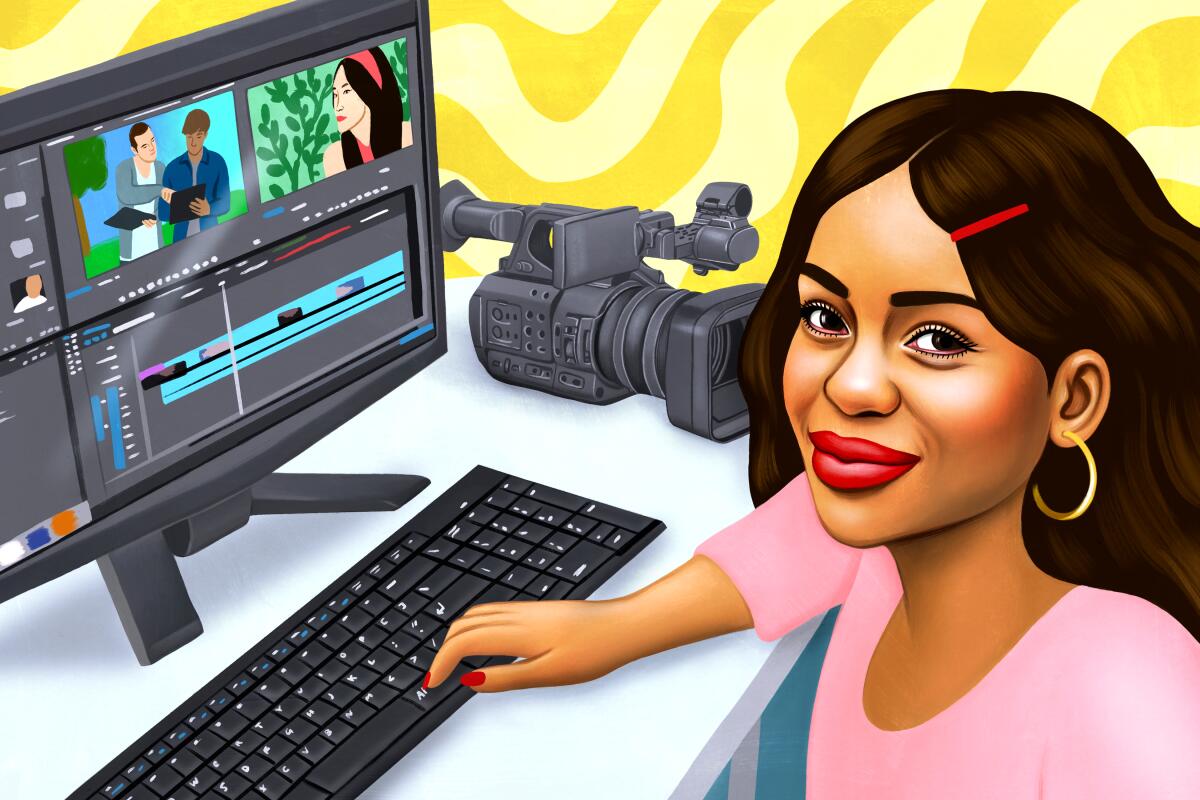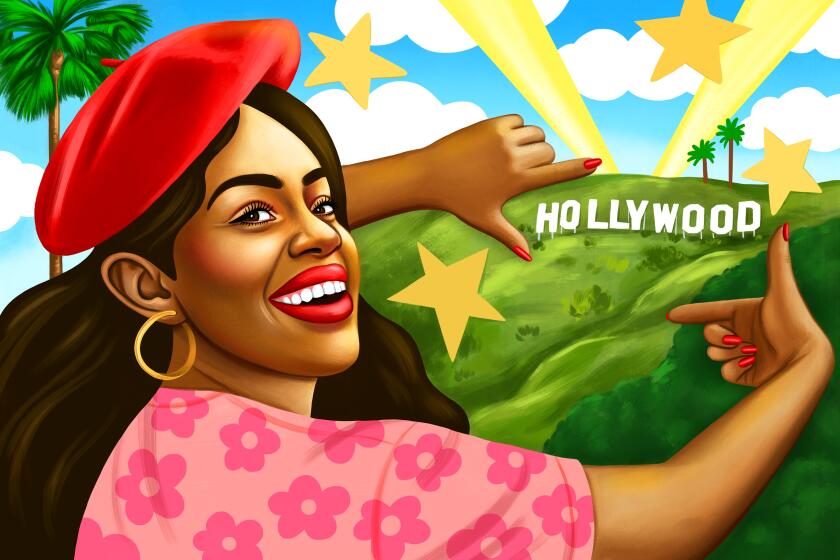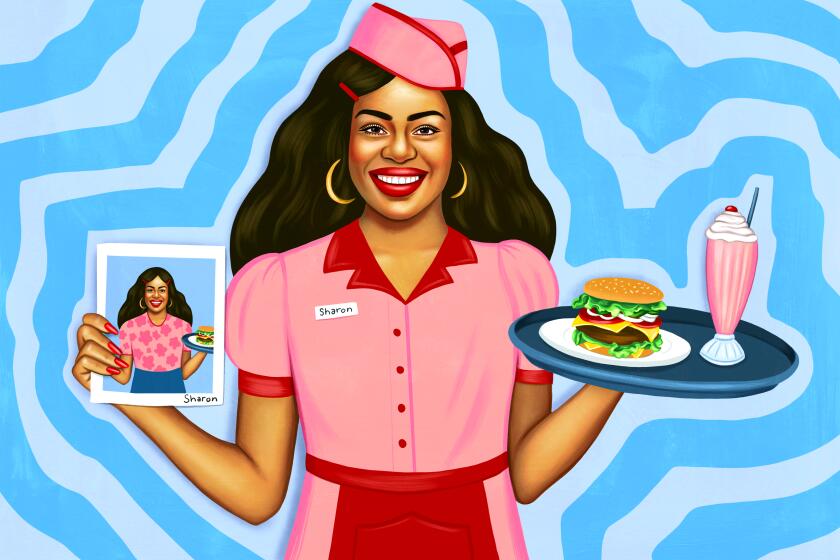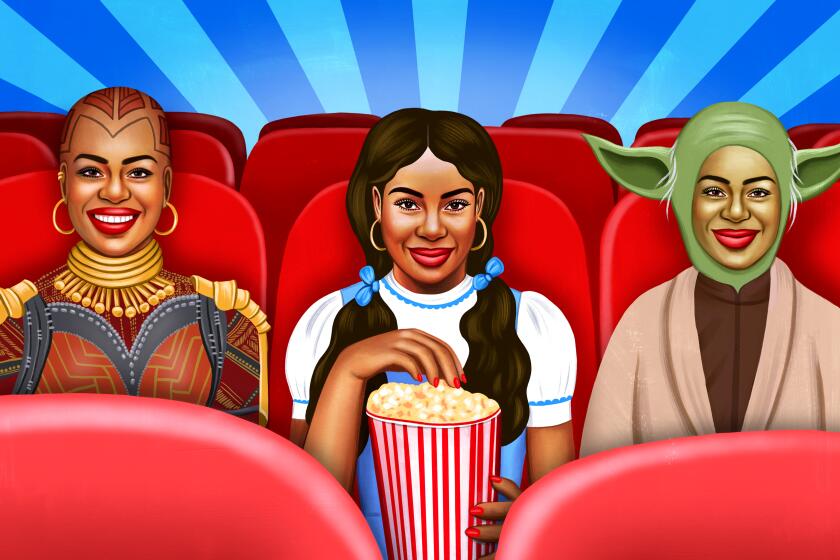Explaining Hollywood: How to get a job as a film editor

- Share via
When Chloé Zhao was nominated for best film editing at this year’s Academy Awards, it boosted the chances that her movie, “Nomadland,” would win best picture.
The Oscar win continued a long-running streak. Every best-picture winner since 1981 — with the exception of 2014’s “Birdman” — had also been nominated for film editing. This statistic tracked closely by Oscar prognosticators illustrates just how vital the role of the film editor is.
There have been many illustrious long-term collaborations between Hollywood’s most acclaimed directors and their film editors, such as Martin Scorsese and Thelma Schoonmaker, who has edited all of his movies since “Raging Bull” in 1980. Michael Kahn edited all but one of the films Steven Spielberg directed over the last four decades, and Barry Alexander Brown edited six of Spike Lee’s films, including “Do The Right Thing” and “BlacKkKlansman.”
Traditionally, a film editor, or more precisely a picture editor, was the person snipping celluloid together to make a film reel. Today, the work is almost completely digital. And like many roles in Hollywood, the route into the industry is not clear-cut.
Here’s a primer on the profession and how to break into it.
We Can Teach You That
How to build a career in Hollywood
Join Times reporters Anousha Sakoui and Wendy Lee, as well as Bree Frank, vice president of physical production for unscripted TV at Hello Sunshine, and Phillip Sun, the president and co-founder of the management company M88, for a virtual webinar on careers in the entertainment industry. We’ll discuss the state of Hollywood jobs, how aspiring entertainers can get a foot in the door, and take your questions.
When: Tuesday, Aug. 10, 6 p.m. Pacific time
Cost: $10 for Times subscribers; $20 for non-subscribers
Tickets: Sign up on Eventbrite
What’s on your mind? Please let us know in advance of Aug. 10 about your interests and most pressing questions about working in Hollywood. Share your questions here.
What does a film editor do?
A film editor will take the footage a director has shot each day and fit together the narrative of the story. It isn’t what some people commonly think, simply cutting out errors from the footage.
The best editing shouldn’t be noticeable, said Jenni McCormick, executive director of the American Cinema Editors, an honorary society of film editors.
“It’s meant to be an invisible art,” McCormick said. “It is like a puzzle, putting a story together based on what footage you have.”
A picture editor will work closely with a director, but the workflow will differ depending on whether the material is for TV, documentary or feature film. Regardless, the job often entails working in front of a computer for long hours, using editing systems such as Adobe and Avid.
A film editor will be helped by assistant film editors and apprentices. Assistants take the unedited digital footage and log the pieces for easy reference for the editor or the director. The editor then begins to craft what’s known as the editor’s assembly, to present to the director to make their cut.
Careers in the entertainment industry can be mysterious for those just starting out, and even for those working in the business. The Los Angeles Times brings you explainers and advice for starting and building your career in Hollywood.
Who becomes a film editor?
The first exposure many get to editing is at film school where students fulfill different roles in making their films or those produced by friends.
“A lot of people really do like that storytelling process that the editors get, and so that makes it fulfilling for them, and that’s why they become editors,” said McCormick.
In the 20th and 19th centuries, film editors were most often women, cutting some of Hollywood’s most renowned epics like “The Wizard of Oz” and “Lawrence of Arabia.” The work was low-paying and tedious because it meant going through large quantities of filmed footage.
Despite the gendered view of the role, only about 29% of the Motion Picture Editors Guild identify as female, according to the union’s survey.
About 68% of the membership is white and male, 4% are Black, 5.6% are Asian and 7.3% are Hispanic. The survey found that a majority of guild members believe that discrimination occurs in the edit bays and other places where they work, and that most do not feel safe reporting discriminatory behavior to higher-ups.
Last year, Ri-Karlo Handy, an L.A.-based film editor and producer, attempted to create a list of other editors of color and triggered a backlash from white union colleagues. He later created the Handy Foundation, joining with the Los Angeles Urban League and the Motion Picture Editors Guild to train and mentor assistant film editors and get them their first union jobs in a bid to increase diversity.
For many people who pursue entertainment as a career, it takes years to get yourself to where you are making money from your creative work. For making money in the meantime, there’s always waiting tables. But more and more people are turning to platforms like TikTok, Twitch and Patreon.
What kinds of skills are required?
Editors often have to spend long hours alone working in dark editing bays. Tarantino was known for peppering his footage with his actors saying “Hi Sally” to help break the monotony for his longtime film editor Sally Menke. Being collaborative and supportive are key skills for editors, according to an interview with Menke and Tarantino in the documentary “The Cutting Edge: The Magic of Movie Editing.”
Menke, who died in 2010, described editors as “the quiet heroes of movies” who can have intense relationships with their directors, in an interview with the Observer newspaper.
Handy puts patience as a top skill for a good editor. “Editing is one of the most tedious jobs in our industry and the work is very subjective,” Handy said. “I once cut the same scene over 40 different ways.”
“Mad Max: Fury Road” director George Miller highlighted Margaret Sixel’s problem-solving skills as one of her editing talents and which led to her film editing Oscar win for the 2014 movie, according to the Huffington Post.
Being a film editor is largely a freelance career and some editors suggest that while some editors might be introverted by nature, the ability to network is vital. Building a network to find work opportunities is important, as is establishing connections with other editors and assistants.
How do you get started? What are the career paths?
One route to becoming a film editor is starting as an apprentice. Traditionally you would then spend at least eight years as an assistant editor before ascending to film editor. Most film editors in the union are in their early 40s, according to the guild survey.
Film school isn’t the only route to becoming an editor. “I’ve heard of dozens of stories where people didn’t go to film school, are self-taught all the way and are really successful editors,” McCormick said.
For those with no background in film, one way into the profession is to work as a production assistant and find a job in post-production teams doing basic tasks and learning on the job. On a TV show, there may be two or three editors, and each will have their own assistant who in turn might be aided by apprentices or interns.
Knowledge of various editing software is crucial. “You need to learn all the different platforms because some studios and directors use one kind of platform to edit on and others use something else and so you have to be versatile,” McCormick said.
The American Cinema Editors runs an annual internship program for college graduates that can lead to assistant editor roles and also runs a student competition and several fellowships.
“The process to become an editor is get started on independent projects, share your work and progress with your network, lobby to assist professionals on their projects, and work to build a network of individuals in hiring positions,” said Handy.
The first step in your Hollywood career shouldn’t be paying L.A. rent. Here’s how to take your first steps toward a career in the entertainment industry, according to experts.
How do you make money? (And what kind of money?)
In 1937, when the Society of Motion Picture Film Editors was created, film editors earned $100 per week. Today the union has over 8,000 members, including sound editors and assistant editors, and pay varies widely.
Feature film editors, who account for about 21% of the editors guild, are among the highest-paid. Most earn between $3,000 to $5,500 per week, according to a survey by the Motion Picture Editors Guild (IATSE Local 700). Editors of scripted series represent the largest group and most are paid between $3,500 to $4,000 per week. More than half of the assistant editors in the union work in scripted series, with the majority earning $2,000 to $2,250 per week.
How is this career different than it was 10 or 25 years ago?
The advent of digital technology has increased the importance for would-be editors to know the ins and outs of various systems and rely on assistants as go-to tech problem solvers.
Advances in film technology have also opened up the industry. Thanks to YouTube and other digital video platforms, as well as high-quality smartphone cameras, you don’t have to go to an expensive film school to learn how to edit video. Tutorials on how to use different editing software abound online.
The different worlds of editing
With all the different ways editors can make a career there seems to be no bad advice. Networking and not being afraid of cold-calling editors for advice are among editors’ suggestions.
“I recommend connecting with the community and hearing professional stories from as many editors and assistants as possible,” McCormick says.
During the pandemic, a lot of post-production work was transferred to film editors’ homes. Expensive equipment was dropped off, and some editors were compensated for their higher utility bills.
But it’s uncertain whether film editors will continue to work remotely. While a lot of the work can be done solo, it also requires conferring with the director, which can be more difficult to do remotely.
Not all editing jobs are the same. If you want to edit reality TV, talk to people who work in reality TV, and likewise for film or documentary categories, Handy says.
“These are all completely different businesses with completely different groups of workers, workflows and pathways,” Handy said. “People generalize their advice too much and people go pursuing a studio film career with reality TV advice and they are two different worlds.”
Amid entertainment’s reckoning over systemic racism, activists have launched initiatives aimed at helping marginalized film and TV talent advance.
Thelma Schoonmaker began working with Martin Scorsese in 1967. Over the years, she says, it has become more of a collaboration.
More to Read
Inside the business of entertainment
The Wide Shot brings you news, analysis and insights on everything from streaming wars to production — and what it all means for the future.
You may occasionally receive promotional content from the Los Angeles Times.
















